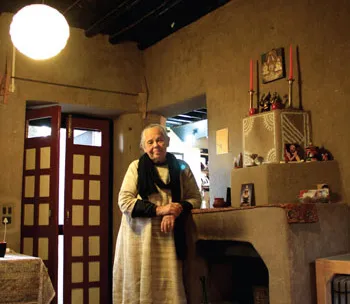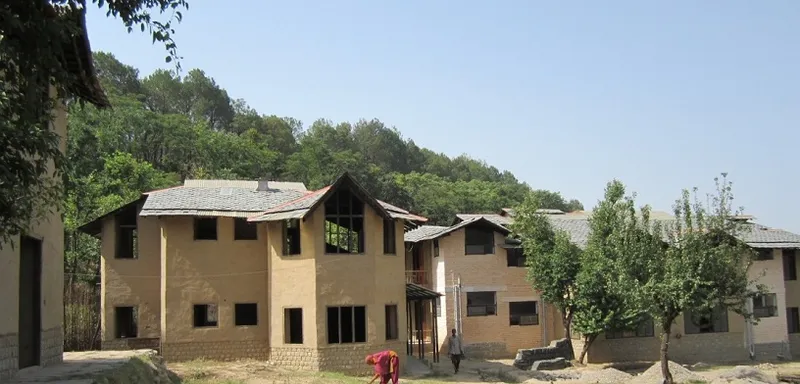An octogenarian on a mission to build sustainable homes in mountain terrain, Didi Contractor

We're building skyscrapers. Taller and taller. Popular perception sees this as development. To a certain extent, it is, but to Didi Contractor, an 84-year-old woman settled near Dharamsala in the foothills of the Dhaludhar Range, sustenance has gone for a toss. Born of a German father and an American mother, Dalia (famously known as Didi) had come to India more than six decades ago. She had grown up in Texas, US, and had spent sometime in Europe as well. The Second World War brought her back to the US where she was completing her degree in art at the University of Colorado. Here, she met her husband-to-be, a Gujarati architect and builder Ramji Narayan. They married and came to settle in India.
Didi always had an inclination towards designing and building houses which, as a kid, she did with her parents. A traditional family mindset didn't allow her to work in India but she was too much in love with India to go back. Circumstances changed and she had to part ways with her husband which then took her to Sidhbari near Dharamsala along with her three kids. Since then, she has made Dharamsala her home and has developed a technique to build sustainable houses with mud and stone which is inspired a lot from the local tradition.
An account from a chance hearing at the TEDxDharamsala left me in awe at the sheer exuberance of the lady and her sense of purpose to bring about a change for the good. She has built about fifteen houses, including a beautiful 14-room old people's house, and the technique she uses has a few special characteristics: the houses self-regulate temperature (warm during winters and cool during summers), earthquake-proof, and are completely made from materials available locally. Apart from being high utility and self sufficient, these houses have a certain kind of serene beauty associated with them which make them special. Mud houses are not structures built for scale in the plains but are suited for hilly terrain where cement houses are incongruous.

During the past three decades, apart from building homes, Didi has been training young artisans inculcating ecological values, and reviving local skills. she has contributed to the Nishtha community clinic, the Dharmalaya center for compassionate living, and Sambhaavnaa, an institute for public policy. A student at heart, she studies traditional aesthetics and vernacular traditions to work out their practical adaptations for contemporary sustainability.
In an interview with HarmonyIndia, Didi said, "I am not against money but valuing things by money is a terrible mistake. The most valuable things are those we cannot buy, like love and sunsets. We have betrayed our relationship with nature. We should be ashamed that we are not leaving behind a better world." We cannot go back in time and change the way development has happened, but we can certainly just pause a bit and think of sustenance a bit more before we cement one more brick towards growth.







